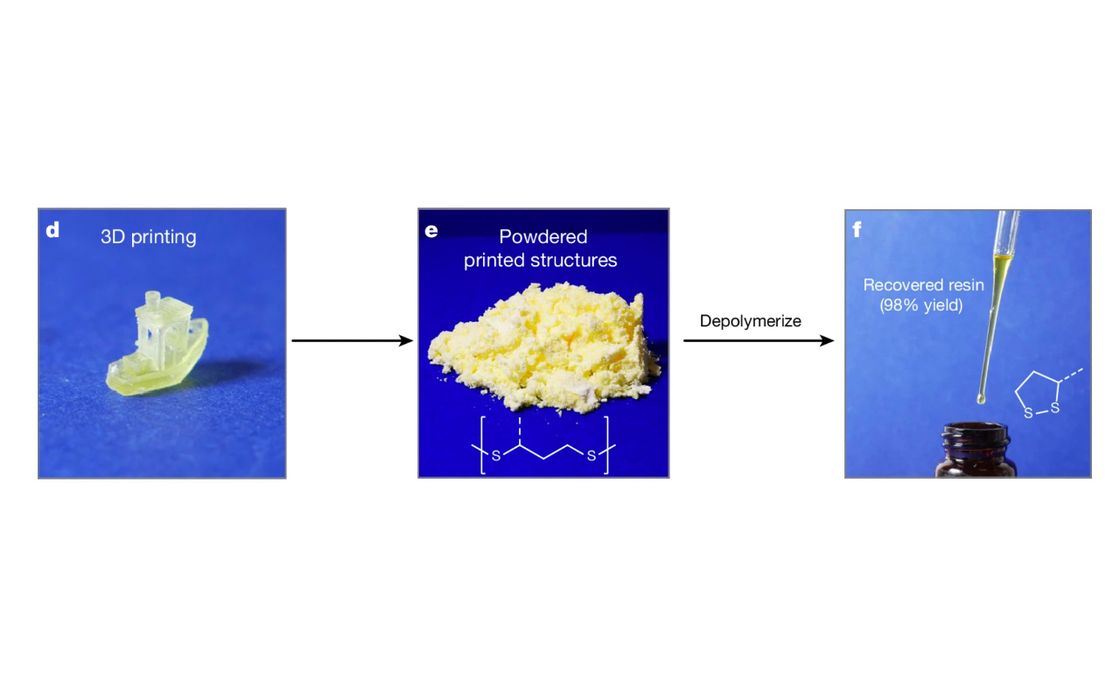
A recent paper shows a new style of 3D printer resin that could potentially be recycled.
The research, undertaken by scientists at the University of Birmingham in the UK, explored ways to solidify polymers without using acrylates and epoxides. These molecules react to light stimuli and cause bonds to rapidly develop. This principle has enabled the development of all resin 3D printers.
However, the current state of resins used in these systems could be considered a thermoset: once solidified, it’s done. It cannot be broken down and re-used in the same manner that thermoplastics can be recycled. This promotes the generation of waste, which ultimately leads to more microplastics in the environment.
The researchers were able to identify a new approach to creating photopolymer resins. They explain:
“Here we describe a photopolymer resin platform derived entirely from renewable lipoates that can be 3D-printed into high-resolution parts, efficiently deconstructed, and subsequently reprinted in a circular manner. Previous inefficiencies with methods using internal dynamic covalent bonds to recycle and reprint 3D-printed photopolymers are resolved by exchanging conventional (meth)acrylates for dynamic cyclic disulfide species in lipoates. The lipoate resin platform is highly modular, whereby the composition and network architecture can be tuned to access printed materials with varied thermal and mechanical properties that are comparable to several commercial acrylic resins.”
This was an interesting challenge because a recyclable resin by definition must be decomposable back into the original components but at the same time be sufficiently stable for application use.
While the initial polymerization was straightforward, the issue was how best to recycle it by breaking it down into components that could be re-polymerized. The researchers experimented with several approaches, some of which seem quite complex.
They describe a process they found that worked:
”The printed part was fully dissolved after heating at 80 °C for 3 h under a N2 atmosphere, and the recycled resin was isolated (see Supporting Information for details) in up to 98% yield to afford a viscous liquid. Size-exclusion chromatography (SEC) analysis of the recycled resin showed that it had a similar molecular weight profile to the original resin, although a small amount of oligomeric product was observed, which indicates that the depolymerization was not 100% effective.”
While not perfect, they did measure the resulting solution with a nuclear magnetic resonance spectrograph and found that the “formulation was comparable to the initial formulation.” This means it could be re-used for printing a second time after the recycling process.
They found it was possible to perform two cycles of this process, which is quite an accomplishment.
However, the process as-is is likely not going to catch on. Two recycles is perhaps insufficient, and the process of recycling seems to require industrial-level equipment. It’s also not clear what all this will cost.
Nevertheless, they have demonstrated that in principle it is possible to recycle 3D printer resins, and therefore they may have a path to refining the process into something that could succeed commercially.
Via Nature
